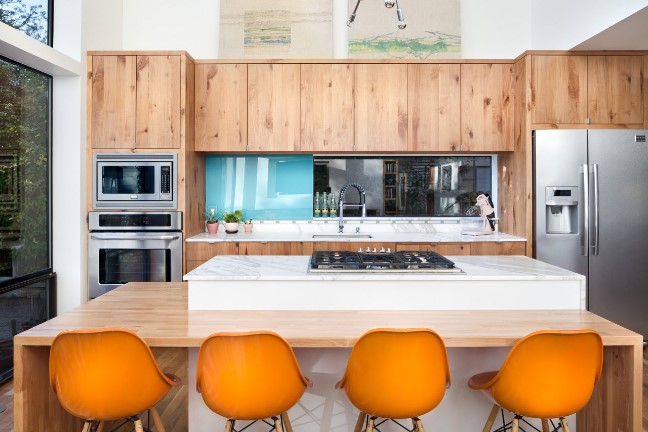
Why You Need to Consider a Kitchen Remodel
Planning is essential to kitchen remodeling, especially if you have a limited budget. It is also essential to consider your family’s needs before you begin the remodeling process. For instance, you should consider what you will be doing in the kitchen, how much space you will need, and the style of your kitchen.
Plan ahead
Kitchen remodels big projects; you must set a budget and decide what you want. It would help if you also determined how to use the kitchen and where to put new appliances. Once you know what you want, the next step is to choose the layout.
If possible, plan you remodel so that traffic flows easily from one area to another. For example, you should leave at least 42 inches between the counters and the island. Having a designer or contractor visit your home to discuss your kitchen remodel Odem TX is also a good idea. Finally, stick to the plan. You don’t want to spend more money than you can afford.
Budget
When planning a kitchen remodel, there are several budget considerations you should keep in mind. The first is the number of changes you want to make. Then, you’ll want to decide how much money you want to spend on these changes. Considering your number of choices, it can be challenging to stick to a budget. Home renovation experts recommend allowing about 20 percent of the budget for unexpected costs.
Another budget consideration is the cost of labor. A kitchen remodels can easily break the bank, especially if you plan to stay in the house for several years. It is wise to prioritize certain features over others if you want to stay within your budget.
Common Pitfalls of a Kitchen Remodel
One of the most common pitfalls of kitchen remodels is to focus on the features of your kitchen that will benefit you the most. This can be easy to overlook, but you must always consider the future of your home when planning your kitchen remodel. It is essential to incorporate features that will increase the value of your home and will be desirable to future owners.
Another common mistake is hiring the wrong contractor. Without proper planning and budgeting, you may run over budget and waste valuable time. In addition, it is easy to make impulsive decisions, which could lead to significant problems in the middle of the project.
Imagining Your Family’s Cooking Needs
When considering a kitchen remodel, you should first consider your goals. It would help if you also considered how your family uses the space. Do your family often do homework on the island counter or mail pile? You should consider the best layout for your new kitchen.
Then, you can begin researching the various types of kitchen remodels available and decide on the features that will be most important to you. Start by browsing pictures of kitchens online. Consider each style and note down the elements you like the best. For example, you may want an open layout with an island, a walk-in pantry, a high-tech kitchen, or a modern look. Try to envision your new kitchen as a space that solves your family’s pain points.
Choosing a Contractor
Before deciding on a contractor, take the time to interview several candidates. You want to find a company you feel comfortable with and can work within your budget. If you can, interview at least two to five different companies, depending on the extent of the project. You should also make sure that you find a contractor who is trustworthy and willing to be transparent about costs. Also, avoid contractors who offer generous allowances, which can balloon as the project progresses. It’s also a good idea to have a contract in place, which should spell out the costs involved, a target date for completion, and a detailed project description.
Another factor to consider when choosing a contractor is the type of remodeling project you have in mind. For example, if you plan on remodeling your entire house, a general contractor may be more convenient than one specializing in kitchen remodeling. In either case, you should look for a contractor who can handle all aspects of the project, preferably with an extensive portfolio of similar projects.
